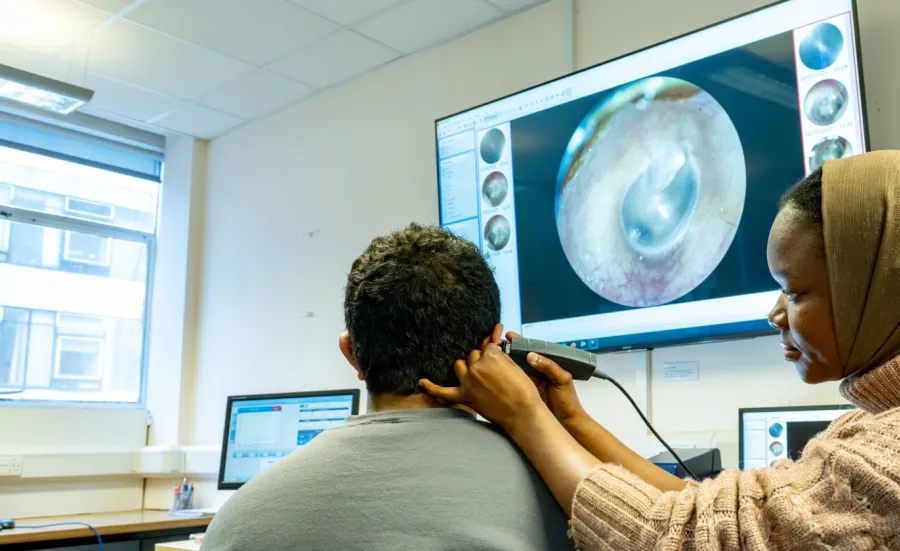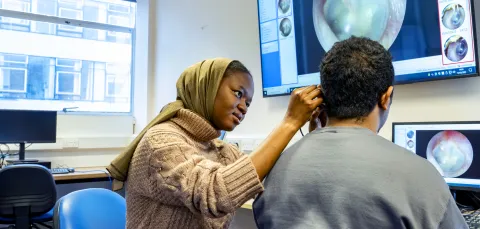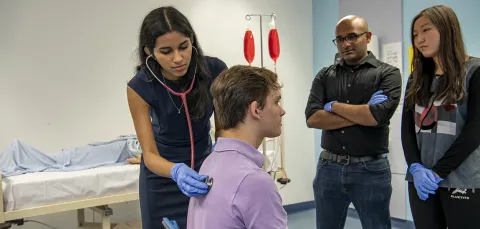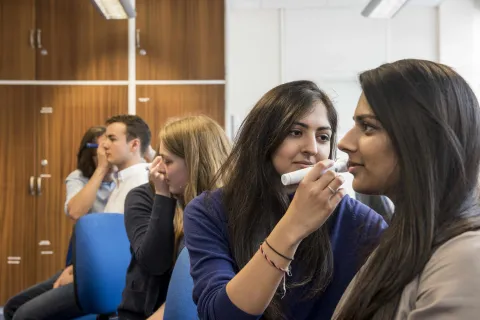About this course
MSc Advanced Audiology provides master’s level education in hearing and balance science. With advanced topics and collaborative, research-led learning, you'll be prepared for a career in future research and advancing your clinical practice.
This advanced audiology course gives you the opportunity to further your clinical or research career in a dynamic, research-led environment. You'll learn within a community of people actively carrying out, and passionate about, research, evidence-based practice and person-and-family-centred practice in audiology.
You'll develop:
- a deep, critical understanding of audiology and hearing and balance sciences
- the capability and confidence to participate in scientifically rigorous research
- effective critical thinking and problem-solving skills
- skills to prepare you for roles with a greater emphasis on leadership
As a student here, you will be a central part of our community and engage in research, debate, enquiry, reason and reflection throughout the programme. You'll learn from people practicing research and clinical work in audiology, benefitting from the expertise of colleagues at the University of Southampton Auditory Implant Service. You'll also have access to specialist clinical skills labs to help develop practical skills and complement your theoretical knowledge.
This is not a clinical training route. If you have no, or very limited, previous clinical experience in Audiology and want to work in the UK as an audiologist, our MSc Audiology with clinical placement is a better option for you.
We regularly review our courses to ensure and improve quality. This course may be revised as a result of this. Any revision will be balanced against the requirement that the student should receive the educational service expected. Find out why, when, and how we might make changes.
Our courses are regulated in England by the Office for Students (OfS).
Course lead
This course is lead by Dr Victoria Watson.
Dr Victoria Watson is a Principal Teaching Fellow in Audiology. She is Employability lead for the Audiology programmes and is registered with the Health and Care Professions Council (HCPC) as a Clinical Scientist.
Course location
This course is based at Highfield.
Awarding body
This qualification is awarded by the University of Southampton.
Download the Course Description Document
The Course Description Document details your course overview, your course structure and how your course is taught and assessed.





